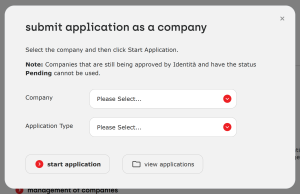
Act XX of 2024: ‘Various Laws relating to Private Residential Leases (Amendment) Act’ – Key Effects and Legal Implications
On June 18th 2024, Act No. XX of 2024, titled the ‘Various Laws relating to Private Residential Leases (Amendment) Act’, was published in the Maltese Government Gazette. This Act amends both the Civil Code, Chapter 16 of the Laws of Malta, and the Private Residential Leases Act, Chapter 604 of the Laws of Malta. its purpose is to afford more protection to both the lessor and the lessee, respectively, and this is achieved by broadening the Authority’s enforcement powers, regulating lease substitutions, additions, consensual terminations and express renewals more thoroughly, and imposing harsher penalties for non-compliance with the Amending Act.
Amendments to the Civil Code
- Article 1555A of the Civil Code: Non-Use of Tenement
The amending act is divided into two parts: Part 1 which amends the Civil Code, and Part 2 which amends the Private Residential Leases Act. Article 1555A of the Civil Code has been revised to remove the reference made to Article 1531F of the Civil Code. Article 1555A deals with instances where the leased property is not being used, due to the tenant being absent and is instead residing in a healthcare facility.
Previously, the second sub-article of Article 1555A provided that if the tenant was admitted to a healthcare institution, the lease would automatically transfer to individuals listed in Article 1531F, including the tenant’s children and siblings, under certain conditions. However, since Article 1531A was repealed by Act XXIV of 2021, this reference became obsolete.
Under the new amendments, if a lessee has been admitted indefinitely to a healthcare institution, the lessee will be treated as if he had died. In this regard, the provisions of Chapters 69 and 158, which cater for the continuance of a lease upon the lessee’s death are made applicable to these situations. Consequently, the lease may continue only in favour of the spouse or siblings who lived in the same tenement with the lessee for at least four years out of five years preceding 1st June 2008, and who continued to live with the lessee until the admission to the healthcare facility.
Other individuals who lived with the lessee, for the same above stipulated period, but do not meet the tenant definition criteria under the Reletting of Urban Property (Regulation), which came into force through Act XXVI of 2021, must vacate the tenement within five years from the lessee’s date of permanent admission.
The means testing criteria stipulated in the Reletting of Urban Property (Regulation) will still be applicable to the relatives of the lessee who continue occupying the premise.
- Article 1573 of the Civil Code: Or on the Ground that the Lessor Desires the House for his Habitation
Article 1573 of the Civil Code, dealing with dissolution of lease contracts, provides different notice periods to the lessee, in accordance with the remaining period of the lease. Previously, the lessee required a notice period of one month for lease dissolution, if the remaining term was over a year, or fifteen days if it was less, in cases where the lessor wishes to dissolve the lease contract on the ground that he desires the tenement for his own habitation, or wishes to sell the property.
Under Act XX of 2024, a proviso has been added to Article 1573, mandating a minimum notice period of three months for private residential leases, in accordance with the Private Residential Leases Act. The notice must also be delivered by registered letter. This amendment aligns and harmonises the provisions of the Civil Code with the Private Residential Leases Act.
This amendment was also made applicable to Article 1575 of the Civil Code, in case of private residential leases of urban tenements.
Amendments to the Private Residential Leases Act
- Article 2 of the Private Residential Leases Act: Interpretation
Firstly, for clarification purposes, Act XX of 2024 has introduced some new definitions to the Private Residential Leases Act. Whilst the definition of ‘building’ or ‘premises’ has come to mean “a house or other building, or part thereof, which is used or may be used for residential purposes in accordance with the provisions of the relevant laws”, a ‘dwelling house’ has been defined as “a building or part of a building separately let, which includes any land or garden forming an integral part, or enclosed within the precincts of such dwelling house, but does not include any movable structure, vessel or vehicle”. The word ‘lease’ has also been amended to include ‘sublease’ within the definition. The meaning of the word ‘resident’ has also been clarified, and it has come to mean any lessee as defined under this article, and including any other occupant.
A new proviso has also been added to the definition of a ‘residence’, whereby it is now stated that if the tenement in question is being leased by a company to accommodate its employees, whereby the latter are paying any form of consideration to the company, then, this shall be deemed as a sublease.
- Article 4 of the Private Residential Leases Act: Obligation to Register Private Residential Lease Contracts
Act XX of 2024 introduces significant amendments to Article 4 of Chapter 604. Whilst previously, in terms of Article 4(2) the registration period window was within 10 days of the commencement of the lease, today, this has been extended to 30 days, being applicable with retrospective application. Moreover, rather than being a duty of the lessor to register lease contracts, this has now become an obligation.
A proviso has also been added to sub-article (3), stating that such obligation of the lessor to register the lease contract comes into force immediately upon the commencement of the agreement, and in case of criminal proceedings, the 30-day period provided in sub-article (2) would be irrelevant and cannot be used as a defence for delay in registering.
Article 4 of the Private Residential Leases Act has also been amended in relation to the protection of dwelling houses. Article 4(7) now requires lessors to specify the number of residents living in the dwelling house. Then, through the amendments to sub-article (8), the Minister is empowered to set regulations on minimum habitability standards and to limit the number of occupants. In parallel, the Housing Authority is prohibited from registering lease agreements which breach these standards. Then, the law goes on to say that even if, for some reason, the lease is authorised by the Housing Authority, despite not meeting the requisite standards, this authorisation alone does not constitute a certification of the habitability, and therefore, cannot be used as a defence.
In this regard, reference can be made to Legal Notice 197 of 2024, titled ‘Limitation of the Number of Residents who may occupy a Leased Dwelling House Regulations, 2024’, which limits the number of tenants living simultaneously to not more than ten, if the number of residents are not living together as a family, and this is irrespective of whether the property would have been leased in its entirety or by individual rooms.
To determine the exact number of permissible residents, the Housing Authority requires the lessor to provide a declaration, detailing the number of bedrooms and bathrooms in the leased property. Then, the Schedule Annexed to the Legal Notice provides the maximum number of residents allowed, in proportion to the number of bedrooms and bathrooms.
These amendments are intended to provide for a better living standard and improve tenant conditions.
- Article 6 of the Private Residential Leases Act: Requisites in Writing of a Contract of Private Residential Lease
Article 11 of Act XX of 2024 amends Article 6(1)(g) of the Private Residential Lease Act to require the preparation of an inventory for all lease agreements. The inventory must be signed by all parties participating in the lease, and which must attest the condition of the leased premises, and any included furniture, supported by photos and brief descriptions.
Therefore, not only should all lease agreements made after January 2020 be made in writing, but through Act XX of 2024, these must also include an inventory requirement, irrespective of whether the property is furnished or unfurnished. Then, in terms of sub-article (2), if this requirement is missing, then, the lease contract will be null and void. On the other hand, the previous requirement to include the amount of security deposit has been removed.
This amendment is to safeguard both lessors and lessees, by documenting the condition of the property at the start and at the end of the lease, thereby addressing potential damage issues.
- Articles 9A-9D of the Private Residential Leases Act: Addition of New Articles to the Principal Act
Four new articles have been introduced in the Private Residential Leases Act, following Article 9, and which provide guidelines for the substitution and addition of leases. Article 9A, entitled ‘Express Renewal’, has been introduced to explain that apart from the possibility of a tacit renewal, the parties may also renew their agreement expressly. However, for an express renewal to be valid, it must maintain the original terms, with the exception of a permissible rent increase of up to 5%. Moreover, an agreement for renewal cannot be made for a period of less than a year, although a longer period is allowed.
On a different note, if the lessor has given a notice of termination to the lessee, but the latter has continued to stay beyond the contractually agreed period, and with the lessor requesting rent, if such renewed period has not been registered, or at least, the notice of termination has not been withdrawn, an administrative penalty of over 2,000 euros can be issued by the Housing Authority, and this is in line with Article 20.
The second newly introduced article is Article 9B, entitled ‘Substitution of Lessee’. In terms of this article, any party to the agreement can request the substitution of a lessee. However, this will only be valid if it is affected with the express consent of the lessor and the outgoing lessee, and in particular circumstances, also by the new lessees, who are referred to as ‘incoming lessees’. Nonetheless, this substitution can only happen if the total number of lessees who can occupy the tenement simultaneously remains the same. There is also no requirement for a new lease agreement and this also does not interrupt the legal periods of the existing lease. Therefore, the term which was provided initially in the original lease agreement, will subsist vis-à-vis the incoming lease. The incoming lessee must still be provided with the original lease agreement, to understand his rights and obligations. In practice, this is most useful for shared living arrangements.
Differently, the third newly introduced article, Article 9C, deals with the addition of a lease. Any party to agreement may request the addition of a lessee to the same lease agreement, also with the express consent the lessor and also all the other existing lessees. Moreover, the addition of a new lessee will also not result in a new lease agreement and there will also be no interruptions of time periods. However, when a new lessee is added to an already existing lease agreement, he is to also assume responsibility for the debts incurred even prior to his addition.
Finally, the last article which has been introduced is Article 9D, entitled ‘Registration of a new lease in the case of consensual termination of the lease or abandonment of the property by the lessee’. If a lease is terminated by mutual consent or the lessee abandons the property, the lessor may register a new lease for the same property, even if the original lease term is not complete. Then, the Housing Authority is to give notice to the previous lessee, of the wish of deregistration. If the lessor’s wish to register a new lease agreement in bad faith, the lessor remains obligated to the previous lessee. Moreover, although there would have been the cancellation of a lease, the lessor may still bring a claim against the lessee for the abandonment of the property.
This termination by mutual consent or by abandonment is also made applicable to cases where multiple lessees are involved, and only one is affected by the termination or abandonment. However, in such cases, there must be the consent of the other lessees who appear on the original lease agreement for the other lessee to be removed out.
- Article 11 of the Private Residential Leases Act: Withdrawal by the Lessee in the Case of Long Private Residential Leases
Act XX of 2024 introduces new restrictions on lease termination by the lessee, particularly in cases of lease renewal. If there has been a tacit renewal of a lease agreement, in line with Article 9(2) of the Private Residential Leases Act, and no termination notice has been provided by the lessor at least 3 months prior to the termination, the lessee cannot terminate and withdraw from the lease before at least 3 months have passed from the renewal date, provided the renewal is for one year.
On the other hand, if the renewal was express, in line with the newly introduced Article 9A, the lessee cannot withdraw from the lease agreement unless half the period as specified in sub-article (1), which sets out the time within which a lessee can withdraw from the lease agreement in accordance with the duration of the lease agreement itself, has passed. These changes are designed to provide greater stability and predictability in lease agreements following renewal.
- Article 20 of the Private Residential Leases Act: Enforcement Procedure
Article 20 of the principal act has been substituted, providing for harsher compliance penalties. In terms of the new amendments, the Authority can issue a written notice, detailing corrective actions and provide an administrative penalty, if found guilty of the offence, of not more than 2,329.37 euros, in three instances:
- If a dwelling house is being occupied, for residential lease purposes, by any person without a valid title of lease, either because the lease agreement does not satisfy the written requisites required for a lease agreement, or if it does so, it was not registered properly;
- The lessor has permitted more lessees to live in the same dwelling house than that declared in the registration of the lease agreement;
- A person has made a declaration which is either false, misleading or incorrect.
- Transitory Provision
When it comes to transitory provisions, leases which commenced prior to the introduction of the Amending Act continue to be governed by Chapter 604 of the Laws of Malta, the Private Residential Leases Act. However, if such leases are still in effect as of 31st of August 2025, they must adhere to the new regulations, specifically those on occupancy limits.
In conclusion, this amending act is aimed to modernise the private residential lease market by providing clear guidelines to both stakeholders and interested parties alike. It marks a significant step forward in ensuring that the rights and obligations of all parties are clearly defined in law, which in turn provides more protection to both sides of a lease agreement.
This article is for information purposes only and should not be construed as legal advice.
Article and research done by Ms Caitlin Turner, currently reading a Bachelor of Laws (Honours) at University of Malta.
Sciberras Advocates founded by Dr Adrian Sciberras, is a law firm based in Malta. The firm prides itself to be multi-disciplinary, innovative and flexible in order to meet the changing times and any challenges in the local and international legal scenario. No matter what private or corporate complex demands are called for, Sciberras Advocates offers practical and cost-effective legal solutions to achieve your desired results. You may reach Sciberras Advocates by phone on +35627795222 or via email on [email protected].




